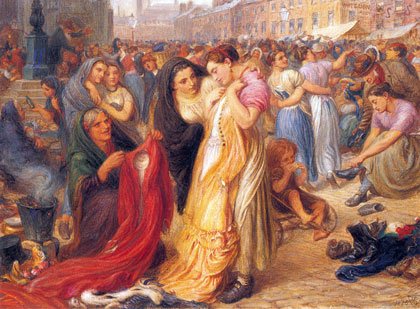Another Woman Writer Gloats
“REAL FAMILIES,” is the name of a personal-essay series at Salon “that celebrates the surprising and ever-shifting nature of domestic life in the 21st century.” Salon means “surprising and ever-shifting” in the sense that tornados and hurricanes that lift whole houses off the ground and hurl them into the air are “surprising and ever-shifting.”
The latest entry is “Why I left my children,” by the Japanese-American, prize-winning author Rahna Reiko Rizzuto. Rizzuto has outdone Eat, Pray, Love author Elizabeth Gilbert by leaving not just her husband but her children too and then writing about it, in the apparent hope of invigorating discussion at women’s book clubs everywhere. (Since many top women writers gloat over their damaged marriages and homes, investing this destruction with drama in order to make money and careers, the competition for any award for the worst wife or mother among them would be quite stiff.) When Rizzuto’s children were toddlers she left them for a fellowship in Asia. Then she divorced her husband and settled down the block from her family. This, she discovered, was a good way to raise her children: (more…)




![bigstockphoto_Black_Flowers_4800530[1] bigstockphoto_Black_Flowers_4800530[1]](https://thinkinghousewife.com/wp/wp-content/uploads/2011/02/bigstockphoto_Black_Flowers_480053013-150x105.jpg)